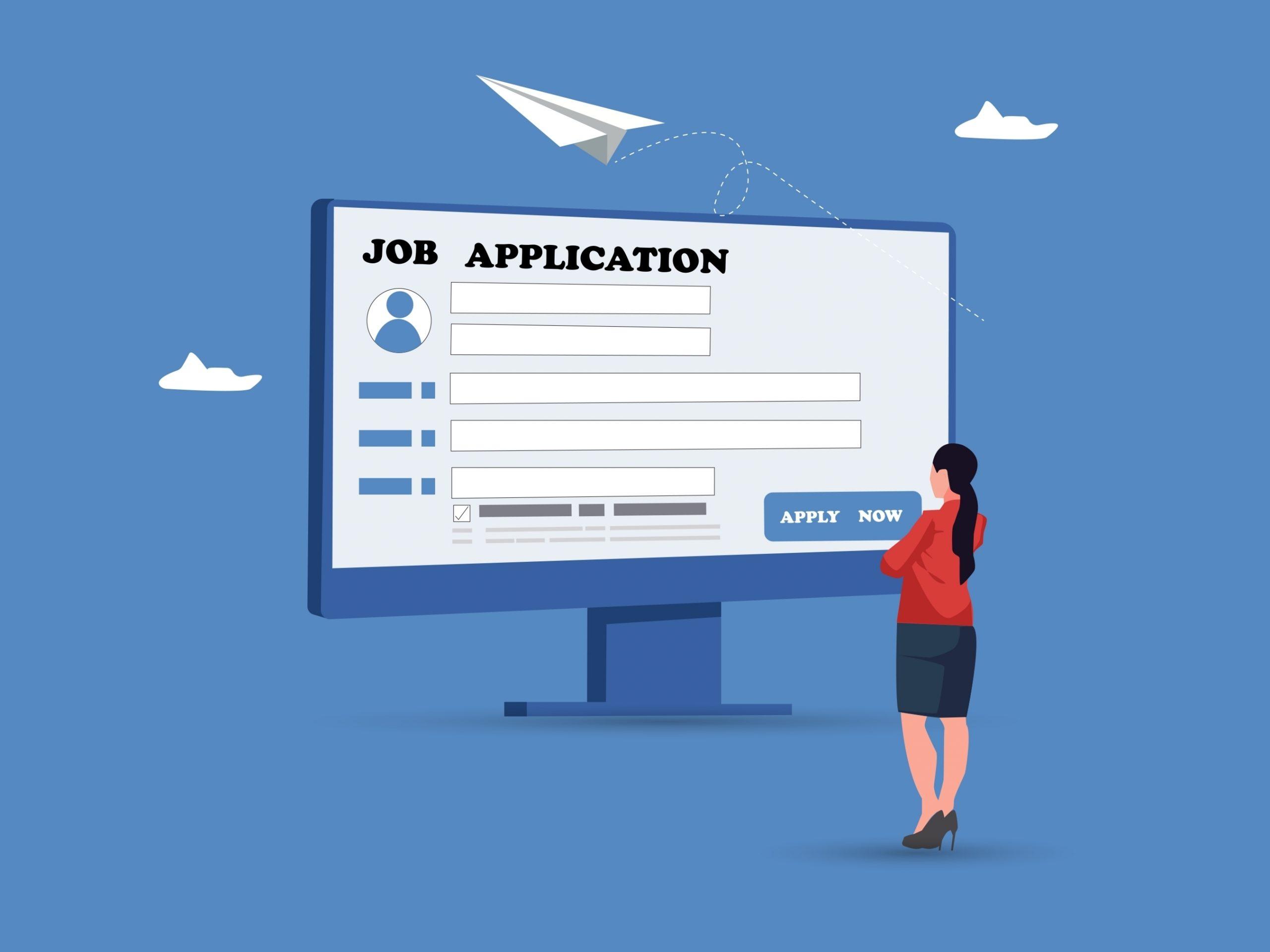The Best Resume Format for New College Graduates
Learn how using the best resume format for new graduates can help you stand out to employers. In this article, you’ll find resume format samples and writing tips to prove you’re ready to step into the role post-graduation.
Sample Resume Format for New Graduates
Click on this resume example for new college graduates, and edit it with the help of our Resume Builder. In our builder, you’ll get personalized content suggestions and tips, plus a customizable, professionally designed resume template to impress hiring managers.
Why Resume Formats Matter for New Graduates
Many recent college graduates have significant training and theoretical knowledge but may lack practical work experience. The best resume format for new graduates like you largely depends on your experience and skills. A good resume should give the employer a positive first impression, even if you have limited experience in the professional workforce.
Keeping in mind that most recent grads might not have much experience, the more traditional chronological resume format, which mainly focuses on the work history section, can do more harm than good for recent grads.
A good option for new college graduates is the combination resume format, especially if you have at least three years of relevant experience — think internships, summer programs, or part-time jobs related to your field of study.
However, the best resume format for new graduates without any relevant work experience is the functional format because its central point is the skills section. This resume will still showcase your achievements, but it won’t present them by job title and years of experience.
How to Structure a Resume Format for New College Graduates
A functional resume is designed to highlight your skills and education rather than your work history, making it a smart choice for recent graduates. Here’s a step-by-step guide to structuring yours effectively:
1. Share your contact information
The contact information section is a key part of every resume. Ensure hiring managers can easily reach you by clearly showcasing your name, phone number, email, and basic location (city and state) at the top of your resume.
Some optional info you can include is:
- LinkedIn profile
- Portfolio
- Professional website
- Resume headline
Example:
Jane LiveCareer
janelivecareer@example.com | (555) 555-5555 | linkedin.com/in/janelivecareer
2. State your goals with a resume objective
As a recent graduate, you may not have extensive work experience to summarize in a traditional professional summary. A resume objective is often a better fit because it allows you to introduce yourself, state your career goals, and explain how you plan to bring value to a potential employer.
A strong resume objective should be clear, specific, and tailored to the job you’re applying for. It should highlight your degree, key strengths or skills, and what kind of role you’re seeking — all in two to three concise sentences.
Good college graduate career objective example:
Recent computer science graduate with strong foundation in software development, data structures, and great teamwork skills. Seeking junior developer role to apply skills in Java and problem-solving abilities to support a fast-paced tech team.
Weak college graduate career objective example:
Recent graduate seeking to obtain a challenging position where I can grow professionally.
Pro Tip
Avoid generic or vague resume objective statements. Show you’ve done your research on the job and that you understand what the company or role requires.
3. Outline your achievements in the skills section
What makes functional resumes unique and ideal for new college graduates is that they showcase your achievements in the skills section.
Instead of organizing your achievements by job, you’ll list them according to the skill they showcase.
To format the functional format skills section correctly, choose three core skills you want to highlight. For each of those skills, you want to think of two to four accomplishments that demonstrate your mastery of said skill.
For example, check out this skills section for a recent journalism graduate:
Skills
Writing & Editing
- Researched and wrote over 20 articles for the university newspaper, covering campus news, features, and profiles.
- Edited peers’ work for clarity, grammar, and AP style as part of the student editorial board.
- Experience writing for digital platforms, including blog posts, newsletters, and social media copy.
Interviewing & Research
- Conducted interviews with students, faculty, and local community members for feature stories and investigative pieces.
- Skilled in sourcing credible information quickly and accurately under deadline pressure.
- Completed semester-long capstone project on misinformation in local news media.
Multimedia & Digital Journalism
- Produced short-form video content using Adobe Premiere Pro and iMovie for online articles.
- Familiar with content management systems (CMS) like WordPress and Squarespace.
- Created infographics and visual elements to support online reporting using Canva and Adobe Express.
4. Keep your work history section minimal
Although you don’t want to draw too much attention to your limited work experience, you should still show employers you’ve been in the workforce.
You can keep the work experience section brief, listing one or two past jobs with the employer’s name and dates of employment.
If you have highly relevant experience spanning more than two years, consider highlighting how you contributed in each role using a combination format.
Instead of organizing your achievements by skill category, you would create a traditional work history entry.
Otherwise, here’s an example of how you would organize your experience in a functional resume:
Work Experience
Intern
Unilever Summer Internship Program — Orlando, FL
May 2024 – August 2024
Administrative Assistant
OPR Marketing Solutions — Orlando, FL
January 2024 – May 2024
5. Showcase your education
As a new graduate, your education is one of your strongest qualifications, so it should be featured prominently. You can also elaborate on additional educational achievements, especially if your academic background is directly related to the role you’re targeting.
Here are some key education details you should always include:
- Degree(s): Full name of your degree (e.g., Bachelor of Arts in History)
- University name and location
- Graduation date (or expected date)
Some optional information, but good to have:
- GPA (if 3.5 or higher)
- Honors and awards (Dean’s List, Cum Laude, scholarships, etc.)
- Relevant coursework (optional but helpful for highlighting specific skills)
- Academic projects (if significant and job-relevant)
- Study abroad or research programs (if applicable)
Here’s an example of an education section for a recent grad’s resume:
Bachelor of Arts in Journalism
University of Oregon, Eugene, OR
Expected Graduation: June 2025 | GPA: 3.7
- Dean’s List: Four semesters
- Relevant coursework: Investigative journalism, digital news production, media law, data visualization for journalists
- Capstone project: Wrote and published six-part investigative series on affordable housing challenges in Eugene, including interviews, data analysis, and multimedia content
- Member, Society of Professional Journalists (SPJ), UO Chapter
6. Consider additional resume sections
A great way to add more accomplishments to your resume to compensate for limited work experience is to include some key extra resume sections, such as:
For new graduates who may lack extensive work experience, certifications show that you’ve taken the time to develop specific, job-relevant skills. For example, a Google Analytics or Microsoft Excel certification can validate your technical competency, while industry-specific certifications can set you apart from peers.
Projects are a great way to add substance to your resume when you have little formal experience. You can share personal passion projects or class projects to offer concrete evidence of your skill set. For example, a final-year engineering design project or a portfolio website will show how you put your knowledge to practice and demonstrate your readiness for the workforce.
Volunteer experiences reflect leadership, compassion, and a sense of responsibility. They’re also a way to showcase transferable skills such as teamwork, communication, and project coordination. If you’re a new grad applying for roles in nonprofits, education, or customer service, volunteer work will highlight your soft skills and personal values, which are increasingly important to employers.
Resumes are highly customizable, and it’s not uncommon for functional and combination resumes to include multiple skills sections. When you have limited experience, it’s totally fair to double-down on the skills you want to showcase. Between six to 12 skills throughout your resume is perfectly fine.
Honors and awards are a great way to prove your credibility to employers as a new graduate. Academic honors (Dean’s List, scholarships, competitions) are impressive achievements that signal consistency and excellence. Including them helps establish a track record of success, even outside the workplace.
Proficiency in additional languages can be a major asset, especially in global or multicultural workplaces. Even basic knowledge of a second language can help new graduates vying for roles in customer service, hospitality, or international business.
Relevant hobbies, like blogging for marketing roles or gaming for engineering graduates, can also subtly reinforce your professional interest or cultural fit. A section highlighting the right hobbies builds personality into your resume and helps you align with company culture.
And that’s how easy it is to write a resume for a college graduate using the functional format!
Resume Tips for New Graduates
Now that you’ve got the structure down, let’s review some expert tips to make the most of your recent college grad resume.
Tailor your resume to each job: Don’t use the same resume for every application; you’ll miss chances to prove your unique suitability for the role. Instead, customize it by including keywords from the job description and highlighting the skills and experiences that align most closely with the role.
Focus on transferable skills: Even if you haven’t had a full-time job, you’ve likely gained relevant transferable skills through internships, class projects, volunteering, campus organizations, and freelance or part-time work. Present these experiences in a way that highlights core skills like communication, problem-solving, time management, or technical ability.
Use action-oriented language: Start each bullet point with a strong action verb (e.g., researched, created, led, designed, edited). Make your contributions sound more dynamic and impactful. For example, instead of “Responsible for writing articles,” say: “Wrote weekly news articles covering campus events and student initiatives.”
Quantify achievements when possible: Numbers help contextualize your impact, and even a rough estimate can make a difference. For example, “Increased newsletter engagement by 25% through targeted content strategy” is a measurable accomplishment that gives employers an idea of what you can achieve on the job.
Proofread, then proofread again: Spelling and grammar mistakes can undermine your professionalism. Use tools like Grammarly or your word processor’s spell-checker, but also have a peer or mentor review your resume for errors and clarity.
Pro Tip
Don’t sell yourself short; showcase all you have to offer to employers as a new graduate, such as, growth, overcoming obstacles, strong work ethic, or your big plans for your future in a cover letter.
Key Takeaways
Use the functional resume format. The functional format is best for new graduates because it highlights skills and achievements rather than work history, making it ideal for when you have limited experience.
Start with a strong resume objective. A tailored resume objective helps define your goals, showcase your strengths, and connect your background to the job you’re applying for.
Emphasize skills over job titles. Organize your resume around two to three key skills. Under each skill, list specific, results-driven accomplishments from internships, school projects, or volunteer work.
Keep work history minimal but present. Include brief listings of internships or part-time jobs to show you’ve been in the workforce, without drawing attention away from your skills.
Make the most of your education. Feature your degree, school, GPA (if 3.5+), honors, relevant coursework, and major academic projects prominently, especially if they relate to the job.
Add extra sections to showcase more value. Use additional sections like certifications, projects, languages, or volunteer work to provide a fuller picture of your qualifications.
Tailor your resume for each application. Customize your resume for each job by aligning your content with the job description and using keywords employers are looking for.
Use action verbs and quantify achievements. Strengthen your bullet points with dynamic verbs and numbers that show impact, such as “Increased newsletter readership by 25%”.
Polish your resume to perfection. Proofread thoroughly! Small errors and typos can cost you the interview. Use spellcheck tools and have someone else review it too.
FAQ
Should I use a resume objective or a summary as a new graduate?
Use a resume objective. It’s ideal for recent grads because it focuses on your career goals, key skills, and how you can contribute — rather than summarizing work history you may not yet have. If you do have a couple of years of work experience, consider the resume summary instead.
How do I write a resume with little or no work experience?
The key to writing a resume when you have limited experience is to use the right resume format and focus on transferable skills from past experiences that you can apply to your target role. For a full writing guide and resume samples, check out our article on how to write a resume with no experience.
Can I include unpaid internships or volunteer work on my resume?
Yes, absolutely. If the experience is relevant to the job or shows valuable skills, include it. Employers care more about what you’ve done than whether you were paid for it.
How long should a college graduate’s resume be?
The ideal resume length for a college graduate is one page. You likely don’t have enough professional experience to justify more, and hiring managers prefer quick, easy-to-read documents.
Should I include my GPA on my resume?
Yes. Include your GPA if it’s 3.5 or higher. It can help showcase your academic strength, especially if you’re applying to competitive roles or don’t have much work experience yet.
What counts as “relevant experience” if I’ve never had a job in my field?
Relevant experience includes class projects, internships, part-time jobs, extracurriculars, freelance work, or volunteer roles that demonstrate applicable skills like communication, research, writing, or leadership.
Is it okay to use a resume template or builder?
Yes, resume templates and builders can save time and improve formatting. Just be sure to customize the content for the job and avoid overly flashy or hard-to-read designs. Check out our resume templates library for customizable and professional options.















